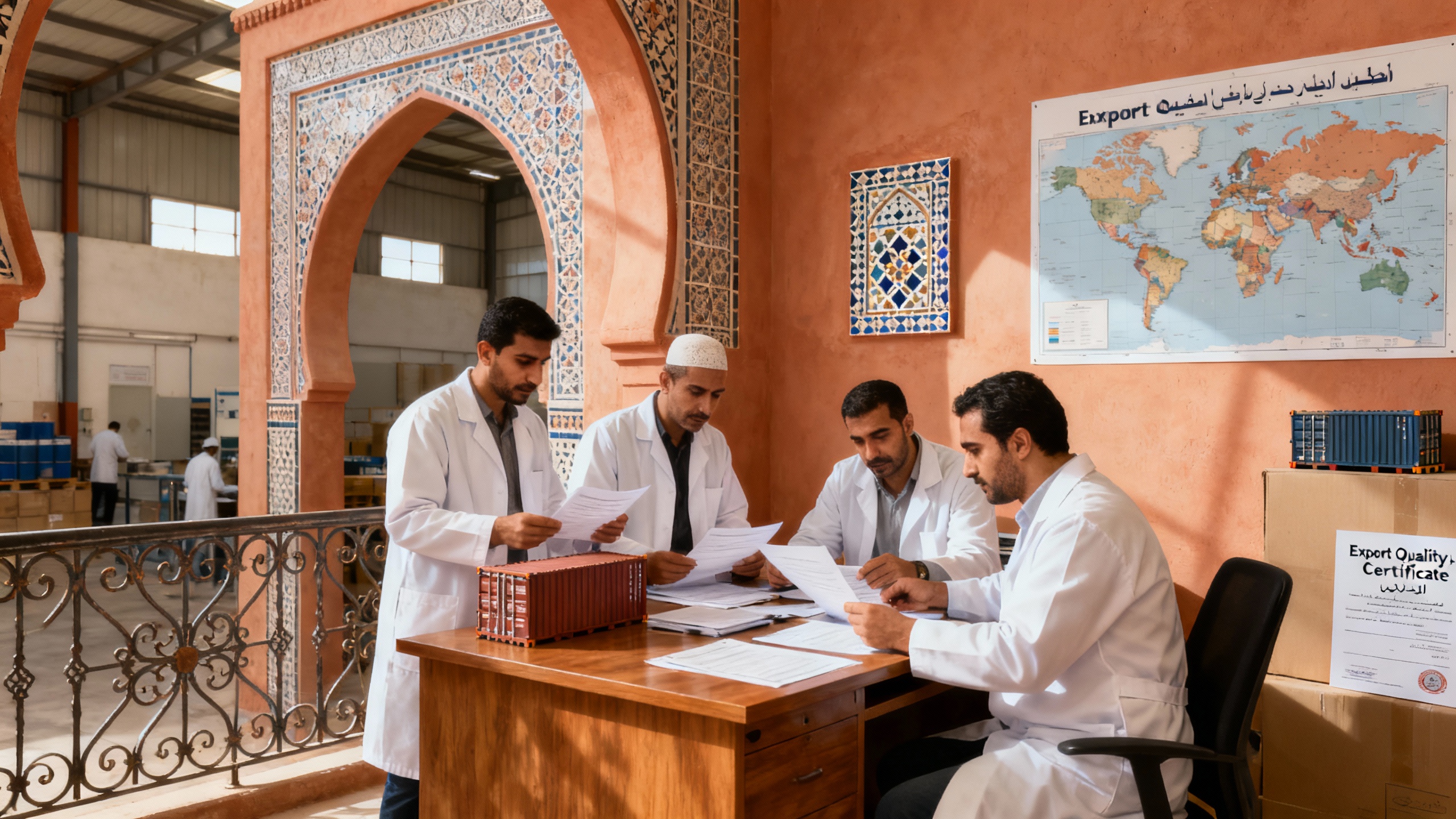Morocco’s medical cannabis industry has entered a historic new phase in 2025, with the launch of its first regulated exports and the approval of 67 cannabis-based products. This marks Morocco’s evolution from decades of traditional cultivation to a fully regulated, international-facing market. These milestones create unprecedented opportunities for domestic producers, multinational distributors, and global patients—but they also raise the bar on compliance.
Morocco’s Medical Cannabis Exports in 2025: A Market Milestone
In early 2025, Morocco shipped its first official medical cannabis export to Australia, inaugurating a new era for North Africa’s emerging legal industry (source). The shipment, facilitated through licensed Moroccan agencies and closely monitored by the Moroccan Agency for Medicines and Health Products (AMMPS), marked Morocco’s entry into the international medical trade. Reports indicate further shipments to regulated markets such as the Czech Republic, reflecting rapid diversification (details).
Approved Products: 67 and Counting
AMMPS has validated 67 cannabis-derived products as of Q4 2025, including:
- 26 cosmetic products
- 41 dietary supplements
These products have successfully registered with Morocco’s regulatory body and demonstrate the broadening of permitted product categories beyond raw plant material (source).
Essential Licensing Requirements and Renewal Cycle
All cultivation, processing, and export activities require licensing via AMMPS and the National Agency for the Regulation of Cannabis Related Activities (ANRAC).
Key License Types (2025):
- Primary Cultivation License: For local farmers on approved plots.
- Processing License: For facilities standardizing, extracting, or manufacturing finished products.
- Export License: Required for exporting raw or processed cannabis products. Exporters must show traceability and certification according to destination country requirements (source).
Licenses are typically valid for one year and must be renewed by demonstrating ongoing compliance, up-to-date reporting, and continued suitability of both facilities and key personnel.
Exporting: EU-GMP and International Compliance Roadmap
The international medical market, especially Europe and Australia, demands strict compliance, notably with EU-GMP (European Union Good Manufacturing Practice) requirements. Achieving EU-GMP is essential for export success—especially if targeting pharmaceutical channels.
Core Compliance Elements:
- EU-GMP certification: Demonstrates that facilities and processes meet stringent quality, safety, and consistency standards recognized in the EU pharmaceutical sector (learn more).
- Good Agricultural and Collection Practices (GACP): Mandatory baseline for cultivation.
- Certificates of Analysis (COA): Validated lab results confirming identity, purity, potency, and that products are free from contaminants.
- Batch traceability and serialization: Product serialization is increasingly required by EU authorities to ensure traceability and anti-counterfeiting.
- Pharmacovigilance protocols: Require documentation procedures to monitor and report adverse events linked to products post-export.
- Quality Assurance (QA) documentation: Detailed SOPs and validation for every production and handling stage.
Export Documentation Checklist
To clear customs and satisfy destination authorities (especially in the EU):
- Export license (from Moroccan agencies)
- EU-GMP certificate
- Batch certificates of analysis
- Product specification sheets
- Shipping/transport documentation
- Phytosanitary and customs declarations
- Serialization data (for pharma-grade exports)
Product Category Limits and Registration
With 67 approved products in late 2025, Morocco’s market is tightly regulated. All products must be specifically registered with AMMPS. There are currently no open-ended categories: each product, including cosmetics and dietary supplements, must be separately approved before being exported or sold domestically (more).
Unapproved or non-compliant products face immediate removal from the supply chain and potential revocation of operating licenses.
Building EU Partnerships: From Compliance to Distribution
Moroccan suppliers aiming to partner with EU-based medical distributors should:
- Secure long-term batch-level traceability (serialization).
- Employ a qualified person (QP) certified to oversee QA/QC and product release per EU practice.
- Develop robust pharmacovigilance agreements with EU partners to ensure continuous safety monitoring, as required for medical products in the EU.
- Use compliant packaging and labelling (in the destination country’s language, with traceability codes). For pharmaceuticals, compliance must mirror local prescription and recall systems.
Enforcement and Risk of Non-Compliance
Moroccan authorities, including AMMPS and ANRAC, have increased their oversight for 2025, with stricter product registration and batch-tracing enforcement. Inspection frequency now includes:
- Annual license renewal audits
- Random facility and document inspections
- Mandatory product testing before export
Penalties for non-compliance include license suspension or revocation, export bans, product seizures, and reputational risk among global partners (source).
Key Takeaways for Businesses and Investors
- Morocco’s 2025 export reforms and product approvals position it as a rising global supplier, but EU-GMP-grade compliance is non-negotiable for regulatory markets.
- AMMPS and ANRAC require annual license renewals and strict product-by-product registration, which will only intensify.
- Comprehensive documentation—from COAs to full traceability—is essential for clearing international borders and protecting distribution partnerships.
- Investors should prioritize firms that invest in compliance management, QA training, and strong EU partnerships, as the international medical market will only become more exacting.
For up-to-the-minute regulatory guidance, EU-GMP certification support, and export compliance checklists tailored for Moroccan exporters,visit CannabisRegulations.ai and stay ahead of global requirements.
